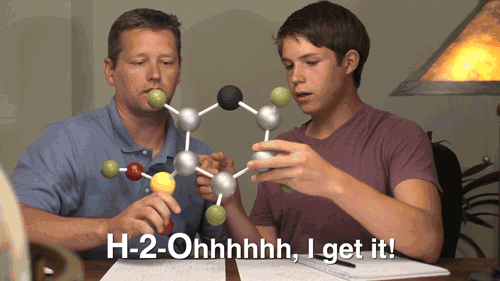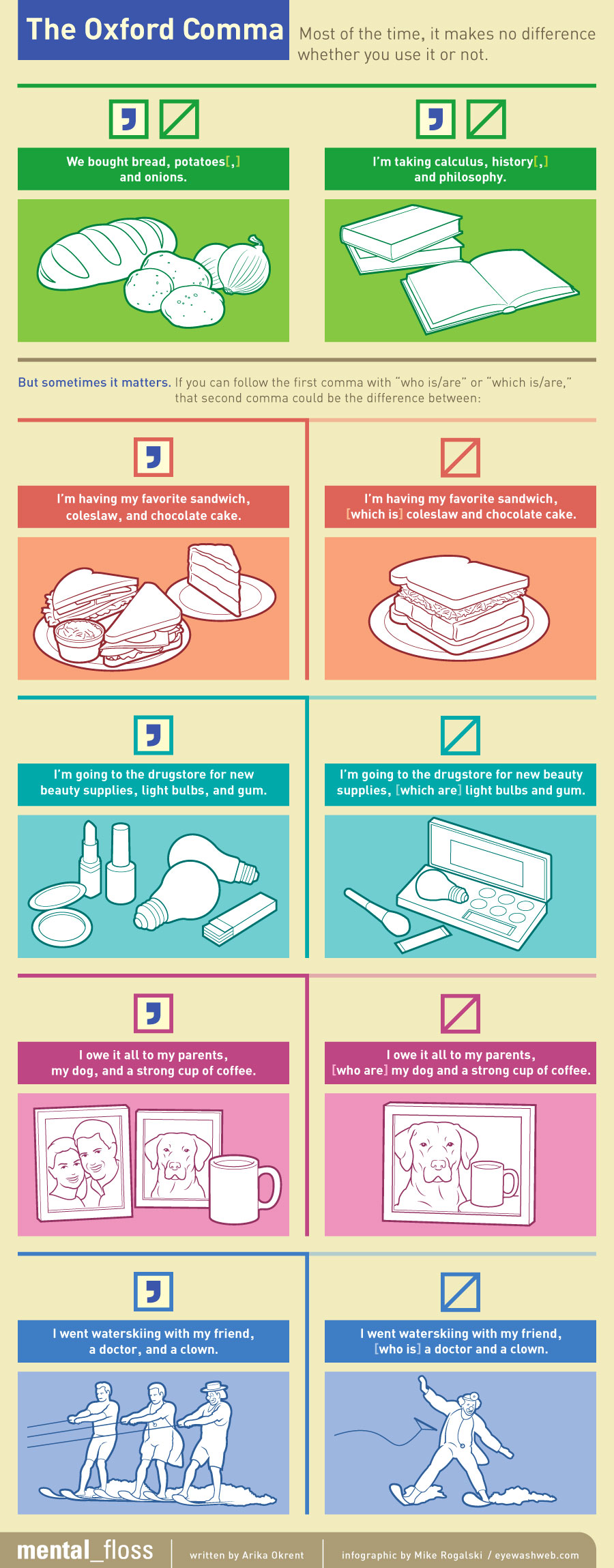Commas
Punctuation… what is it good for?
Don’t say, “Absolutely nothing!” Having worked with itty-bitties who have a tendency to not yet get the concept of run-on sentences, I know that the occasional punctuation mark can change gibberish into an interesting story. What I am skimming looks like word salad, but hand it back to the kid and ask for it to be read aloud and I wish I had a dollar for every time my response has been, “OHHHHH!”

So let’s all agree that punctuation is super important. But why is it equally as difficult to master? Well, like so many things with the English language, there are debates over correct usage and stylistic flair, and of course things change over time.
There are plenty of places on the interwebz where you can find answers to the difference between Chicago Manual of Style and APA on this or that rule. But if you were thinking of hiring Grammar Girl, you wouldn’t be on my site. So what follows is my no-nonsense view on punctuation.
*No punctuation was harmed in the writing of this blog. The views expressed here are not necessarily agreed upon by any major style guide.*
Today I want to talk about commas. Some people don’t use them enough, while others add them like someone asked if they wanted freshly ground pepper on their writing.
I actually remember getting motion sickness from the number of commas one of my students put in his term paper. Or maybe I was hyperventilating from taking a breath which each one, who knows? But it was hard to read!
Commas can be so tricky that I know this won’t be my only piece on them.
Note: I’m a firm supporter of the Oxford/serial comma, so I’m not going into that. I do have clients who don’t use them, and I respect their wishes. I personally like cut and dry rules, so if you need it sometimes, why not use it all the time? In fact, I even read sentences without them differently. But I digress… Check out this infographic if you want some good examples of why I like them:

On to your comma thought lesson.
No hard and fast rules today. No style guide clarity. Just some things to think about while you are editing and debating the merits of a comma.
Leaving lists out of it, I think there are two general reasons you, as a writer, should think about using a comma. If it helps improve the clarity of your sentence, use one. If you really want to show your reader that you are pausing (and it’s not an ellipsis or emdash sort of pause), then go ahead and put one in.
What Do You Mean, Clarity?
In an ideal world, your readers are so immersed in your writing that they are bopping along and picturing every little thing you describe. Then, all of a sudden: trip, fall, die.

Your reader has stumbled over the way your sentence is written. This is the reading equivalent of a record scratch. You do not want this.
Oftentimes, a comma at the point of the record scratch will smooth it out. No more trip, no more fall, and your reader is alive and well to give you a glowing review! Huzzah!
The Pause
So the point of the comma is to make your reader take a quick pause. Not as big of one as at a period but still a pause. It says, “Hey, all of this info here should be grouped together and kept apart from the rest of the sentence, at least a little bit.”
Sometimes, you want your reader to pause. Sometimes you don’t.
Read that again. Did you catch the pause?
Both of those sentences are perfectly fine. In fact, I swapped the commas. I decided I wanted y’all to pause on the first one.
Nope, commas.
The trick to making your reader pause with a comma is to use them this way sparingly. If you throw one in every time you pause, you could possibly create some motion sickness. So only put them in for your readers to pause if you really want to slow them down.
And if you see a ton of commas in the same sentence but there’s no list in sight? That, my friend, calls for a revision.
Comma Overuse Writing Challenge
- Remove all of the commas from a piece of your writing—make a backup of the original and don’t use a piece that has a looming deadline!
- Put the piece away for two weeks.
- Come back and only put in commas where you stumbled over your original meaning.
How does it look? Let me know in the comments below.
Also be sure to tell me what punctuation predicaments you have. I’m here to help and love the writing inspiration.


Leave a Reply